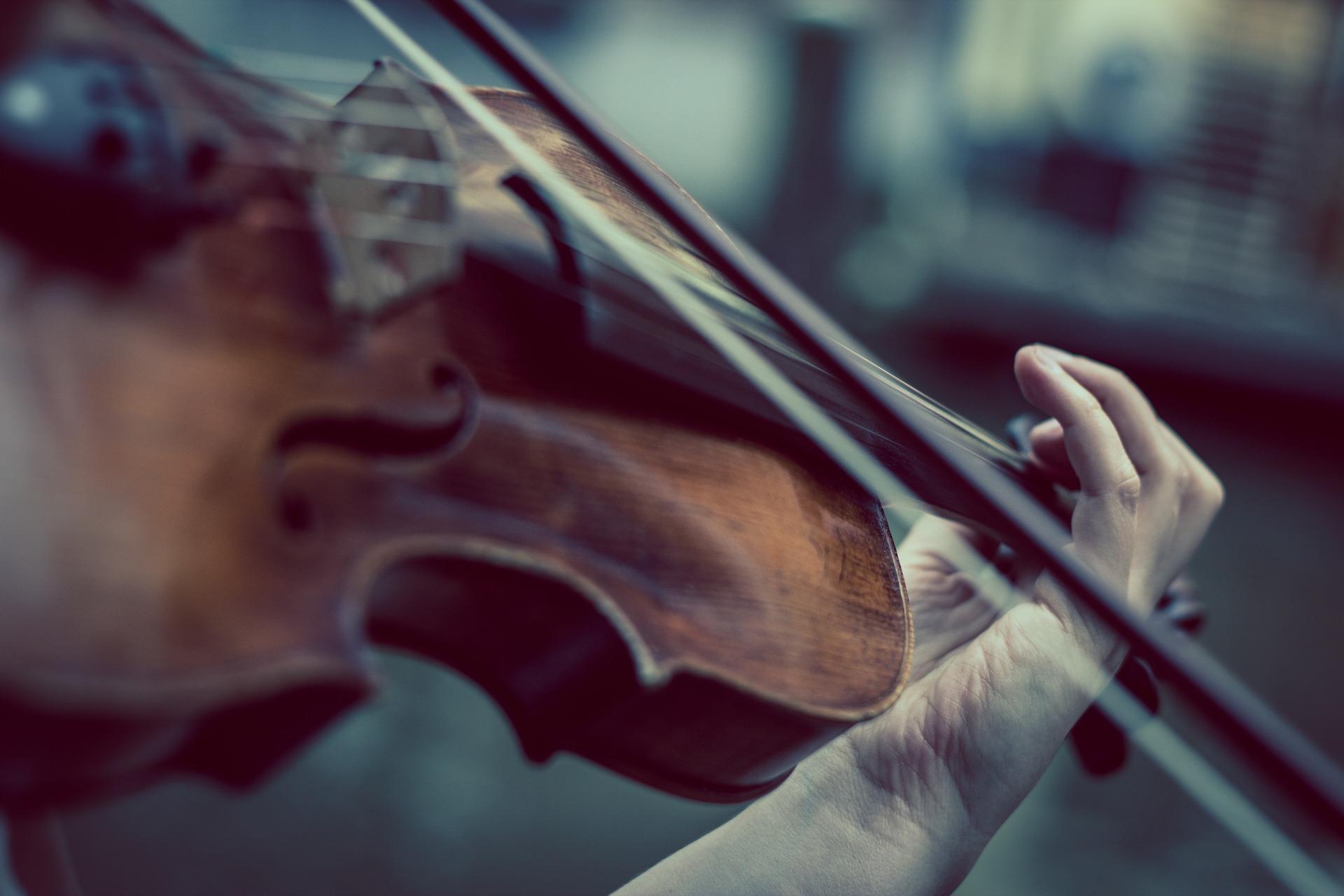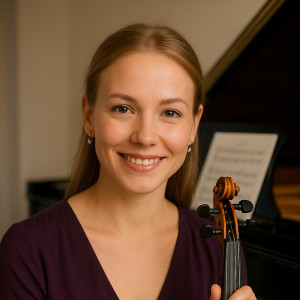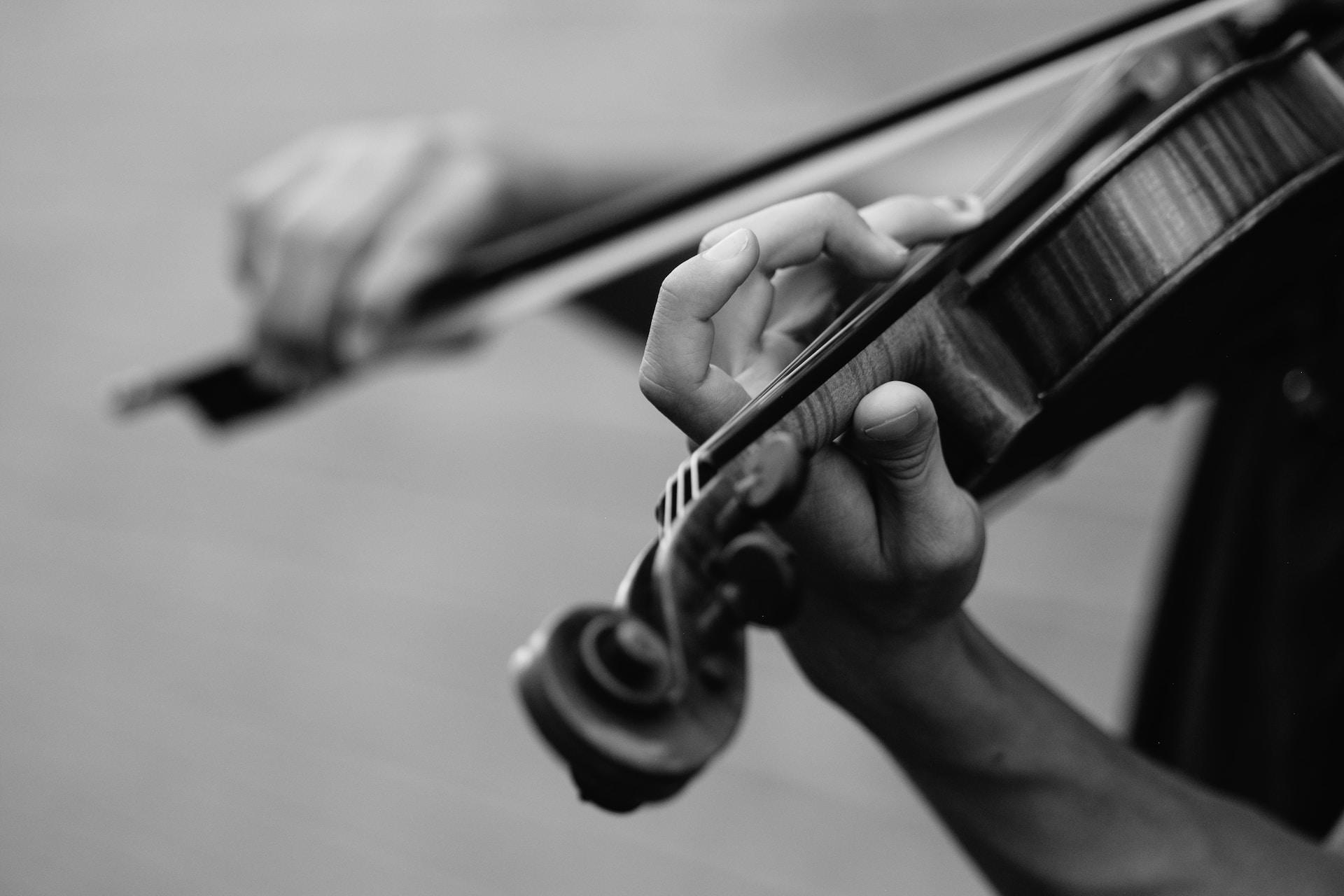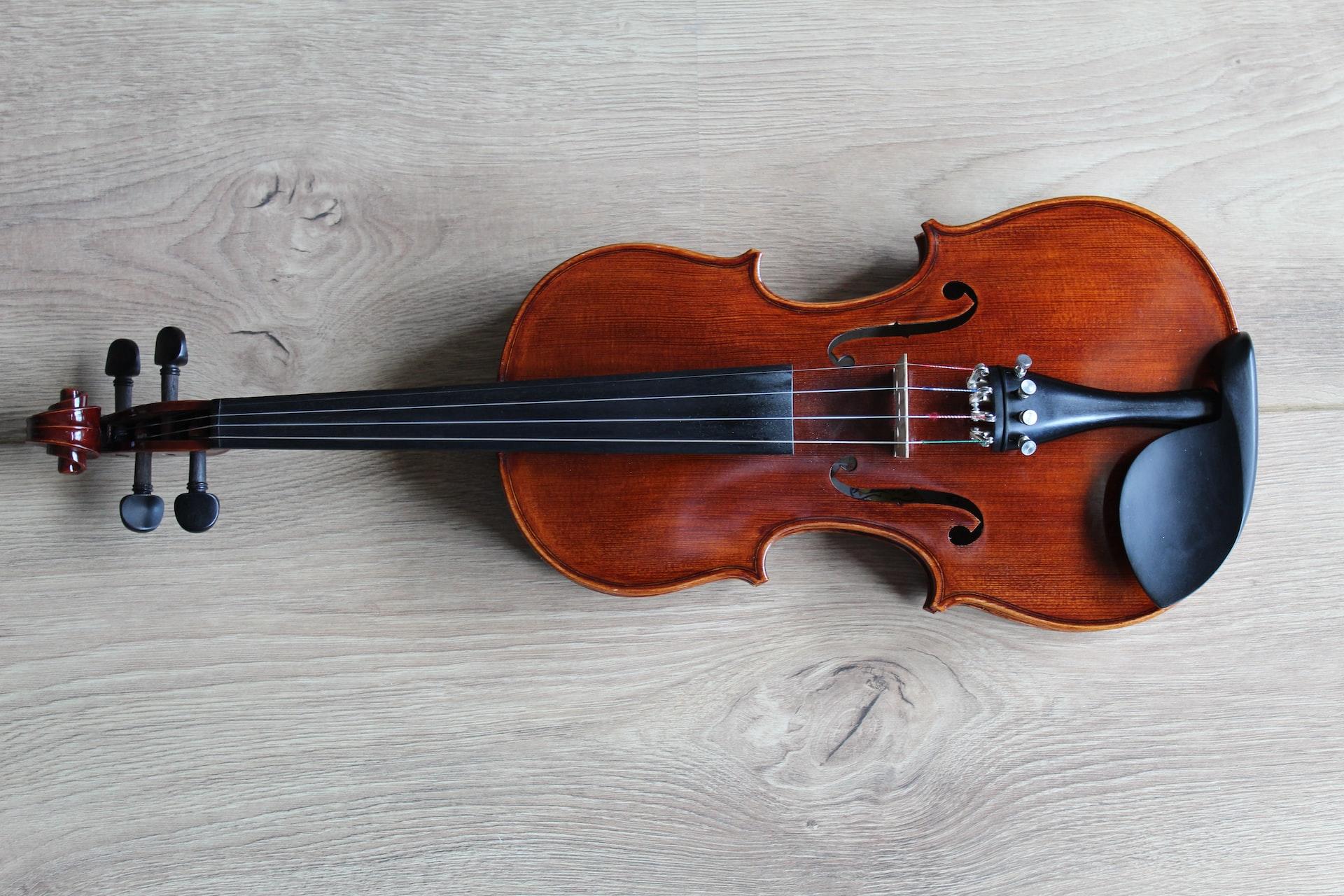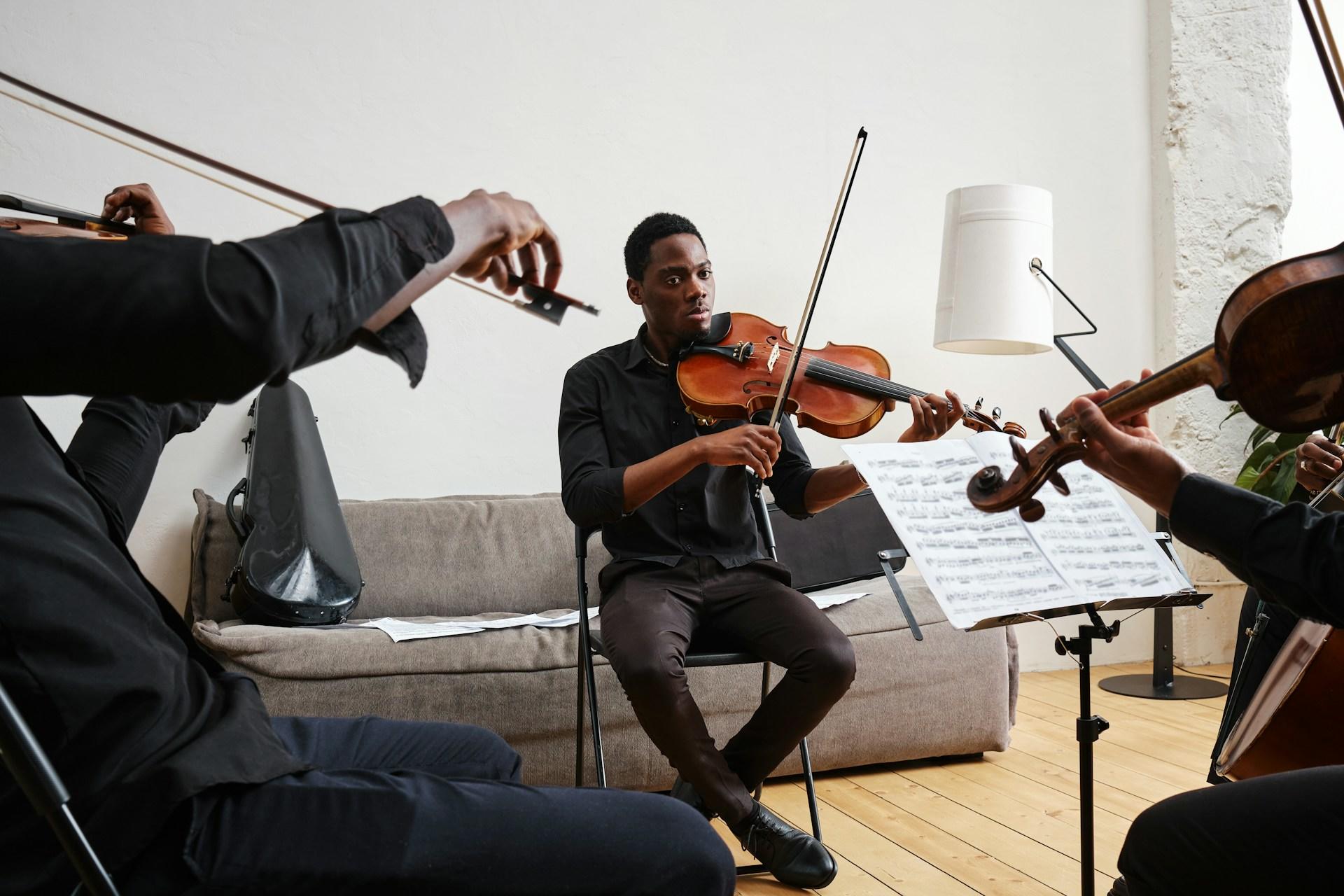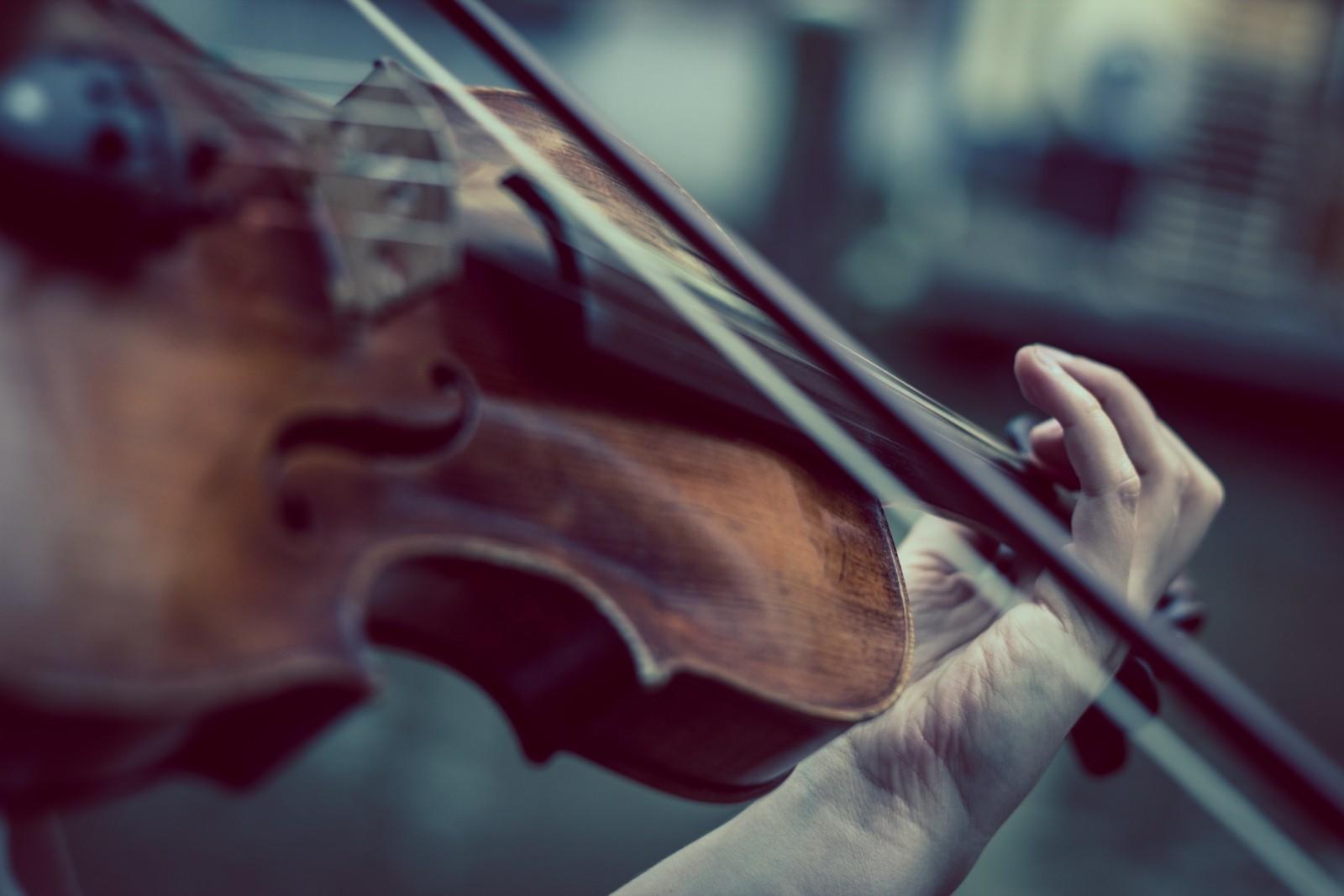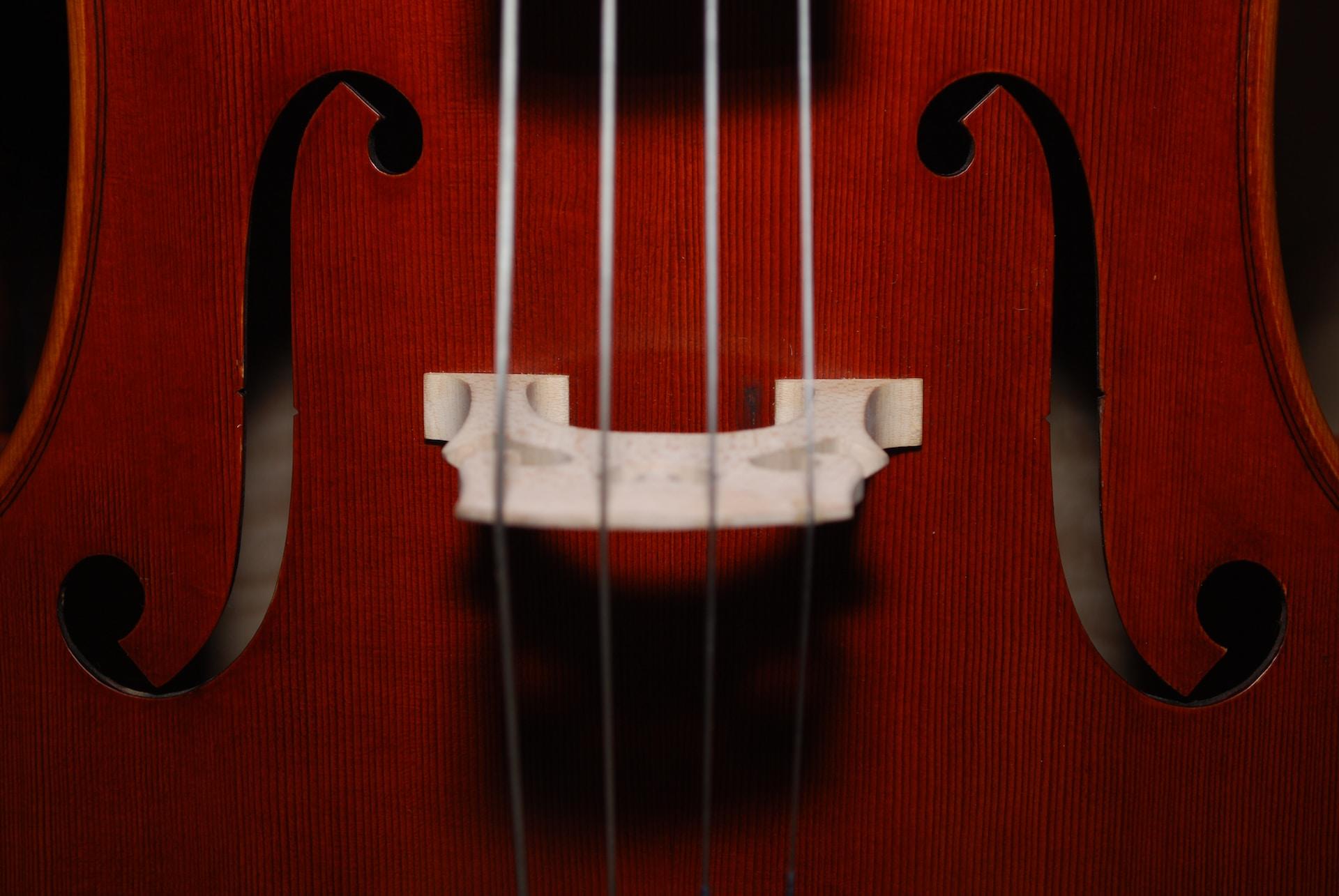Music is present in every aspect of our lives, piano, guitar, violin, viola, cello, bass, piano- these instruments will not be far from your range of experience.
Incidentally, they are also all in the string family like the violin.
Perhaps you've been musical since school, having continued being a music lover since then, but perhaps you also didn't ever think it was worth pursuing lessons after that time, being just a novice in your contact with music.
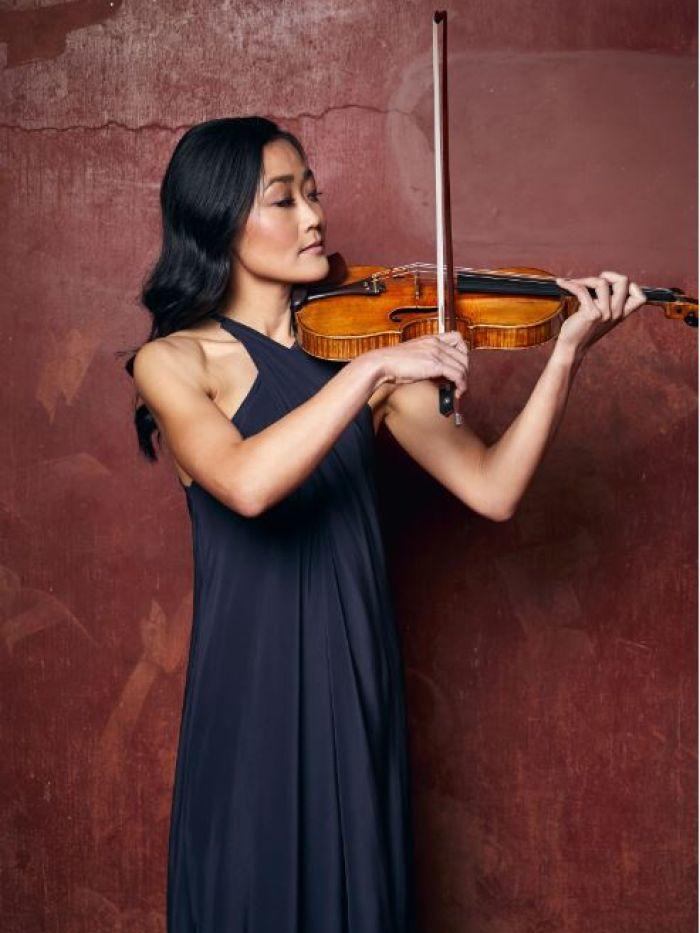

Regardless of the time or years of violin lessons, teachers always enhance your practice and theory understanding
Learning and teaching music, be it classical, rock, or jazz, is achievable for all ages. Within this, you're free to discover what level you are; you could be more advanced than you think! It doesn't matter if you live in the north, south, east, or west of NSW, VIC, or QLD, there could be a violin player in you!
Across Sydney, Melbourne, or Brisbane, or more widely NSW, VIC, or QLD, assistance in music theory, lessons, and practice is available with a tutor, with tuition being surprisingly readily available across Australia. If you're feeling like you want to get from a beginner to advanced stage then, a positive educational journey into music theory and violin practice is highly feasible with a Superprof tutor.
Students can take fun violin lessons to learn basic techniques and start playing nice pieces of music. Superprof has numerous music teachers offering lessons in the south, west, east and north of VIC, NSW, QLD and other places, so you can surely find someone whose profile fits your expectations.
If you are interested in taking violin lessons in Melbourne in particular, you can find plenty of helpful information in our article on the topic.
Violin is somewhat niche as an instrument, compared to its stings based cousin the guitar, but is however popular across Australia and in bigger urban areas like Brisbane, QLD, Melbourne, VIC, and Sydney, NSW.
The violin is however not only destined for classical music but like the guitar and viola, can also be used in pop music too. Violin lessons with private tutors can also help you take a better view to how you learn at school generally, with many a violinist going on to have a career in maths or engineering based subjects.
In addition to the violin, it can also be a good idea for music students to take piano lessons with a qualified teacher. The piano can help you better understand how music works and view the structure of the pieces of music you perform.
This article will run you through some key information about your first violin lesson or extended learning throughout the year. It will help you start to play straight away, regardless of your experience level, and you will be free to explore the different options of webcam, in person, or best private or group practice options that you can book. So park yourself down and learn about the music of the strings, whether you're in the south, north, east or west of Australia, QLD, NSW, or VIC.
To learn more about the violin in Brisbane, you can contact a private tutor and have inspiring lessons with them.
The Violin: An Introduction
It would probably not surprise most students of the violin, and certainly not the most seasoned violinist, that their instrument has existed since the middle ages. However, if this is your first year of violin experience, reading our guide below could be more efficient than an entire book.
It goes without saying that the violin was not invented in Brisbane, Melbourne, or Sydney, and it first appeared in Europe, in particular, Spain and France towards the start of the 18th century the form we know it as now, long before producers of the instrument started shipping it to post-colonial Australia. Classical instruments with strings, which included the guitar, cello, viola, and violin were however didn't keep a low profile, and were very popular in their previous forms.
The one in question, the violin, actually first appeared during the renaissance in the south of Europe, particularly Italy, as a small version of the viola.
This, even at the time, was seen as one of the best instruments for performing and teaching versatile music and gained rave reviews from the nobility and peasantry alike.
It is noteworthy that the violin is small and light, which makes it more wieldy than another high-profile music instrument that is the piano. As a result, the violin gave more freedom to artists as they could easily travel from north to south and from west to east giving concerts.
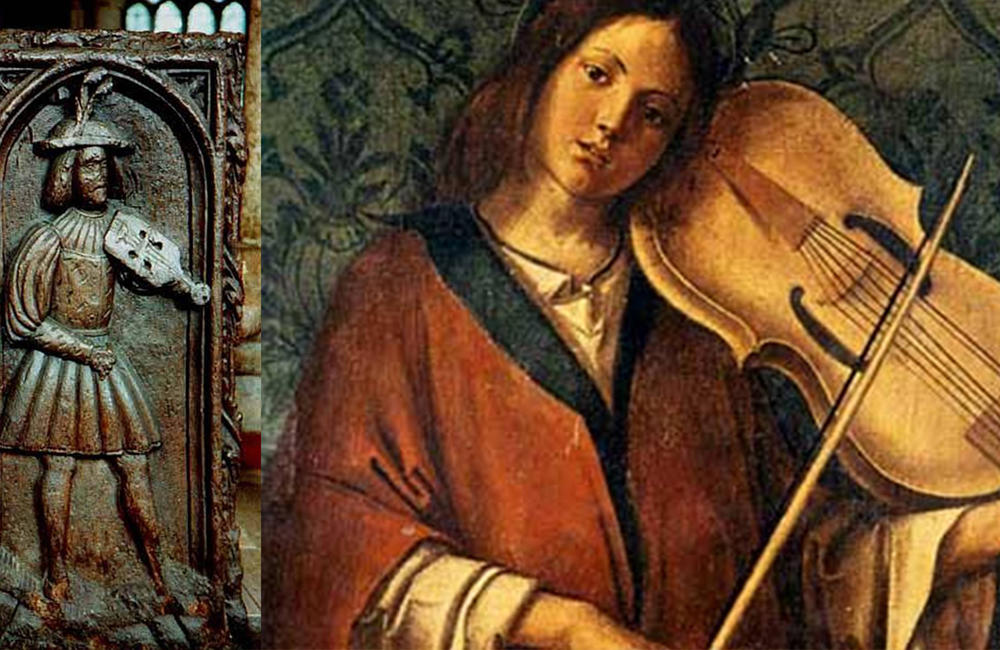
Looking further back at the playing of the instrument, further east and slightly south of Europe there were similar instruments that people would play in China and even in the south of Europe in fact, in Greece, variations of the mandolin and guitar saw students learn to play. These were effectively the first violinist students, which then went from private tuition into group school classes and this experience eventually led to orchestras.
History of the violin is a truly amazing topic and you can learn much about it with a qualified teacher in Hobart.
Classical music still holds great luxury appeal today, thus the violin is still respected in contemporary society's view. Sydney NSW, Melbourne VIC, and Brisbane QLD all have their own orchestras which have years of experience in their profile, so you can rest assured you will be moved by what they play (although you need to book long in advance).
Students who took violin lessons also went onto successful pop and rock music careers too - just think of Untouched by the Veronicas or Bitter Sweet Symphony by The Verve.
For those students who are very serious about their playing, consider private professional violin tuition now with a view to entering a conservatorium of music in Sydney, Melbourne, Brisbane, or elsewhere in Australia or overseas. This will be the best culmination of your training, with classes to refine musicality, technique, and theory over a number of years.

Violin Types
Baroque style - The instrument, as we have mentioned, appeared in its current form during the renaissance in the south and west of Europe. Some of the best teaching methods and tuition at the time focussed on the baroque violin which has thicker strings and a sound closer to a viola or cello, which is very different compared to what you would learn at violin school today.
Stroh - Surprisingly, some people use a violin with strings and a horn in their free time (as this is hard to tutor/work within your professional profile). The Stroh is a product of the 18th century and hasn't experienced a great deal of shipping to Australia, due to the fragility of its strange engineering. The sound is highly memorable and somewhat brassier than what a teacher would use in their lessons today.
Electric - This instrument came to prominence in the early 20th century, meaning that it was also popular in VIC, NSW, and QLD at the time. It was so revolutionary because it made us rethink the profile of a violinist and how sound could be produced, with recording directly into a machine now possible. Playing the instrument gives a different experience since it has strings, but no holes.
Classical - The most popular of arguably all the strings instruments (apart from the guitar) is the classical violin. Teachers often opt for this when teaching you to become the best violinist you can across your years of tuition. Bear in mind that although this is common, it can be quite expensive, with shipping to Australia bumping up the cost to around $850 for a decent one. If you live in a major city like Brisbane QLD, Sydney NSW, or Melbourne VIC, you might want to seek a local manufacturer for this reason.
As buying a violin is an important matter, it can be a good idea to ask an experienced teacher for advice, especially that finding a teacher in Adelaide and other cities in Australia is quite easy.
How much time do you need to master the violin?
When we take up a new activity, like violin or piano lessons, we want to know how long it is likely to take to become good at it. Of course, we are not talking here about become a high-profile musician but even performing small compositions for your friends can be a good achievement.
In general, we can say that music skills are not exactly quick to come. They require regular practice with a view to make certain movements automatic and hone their precision and speed.
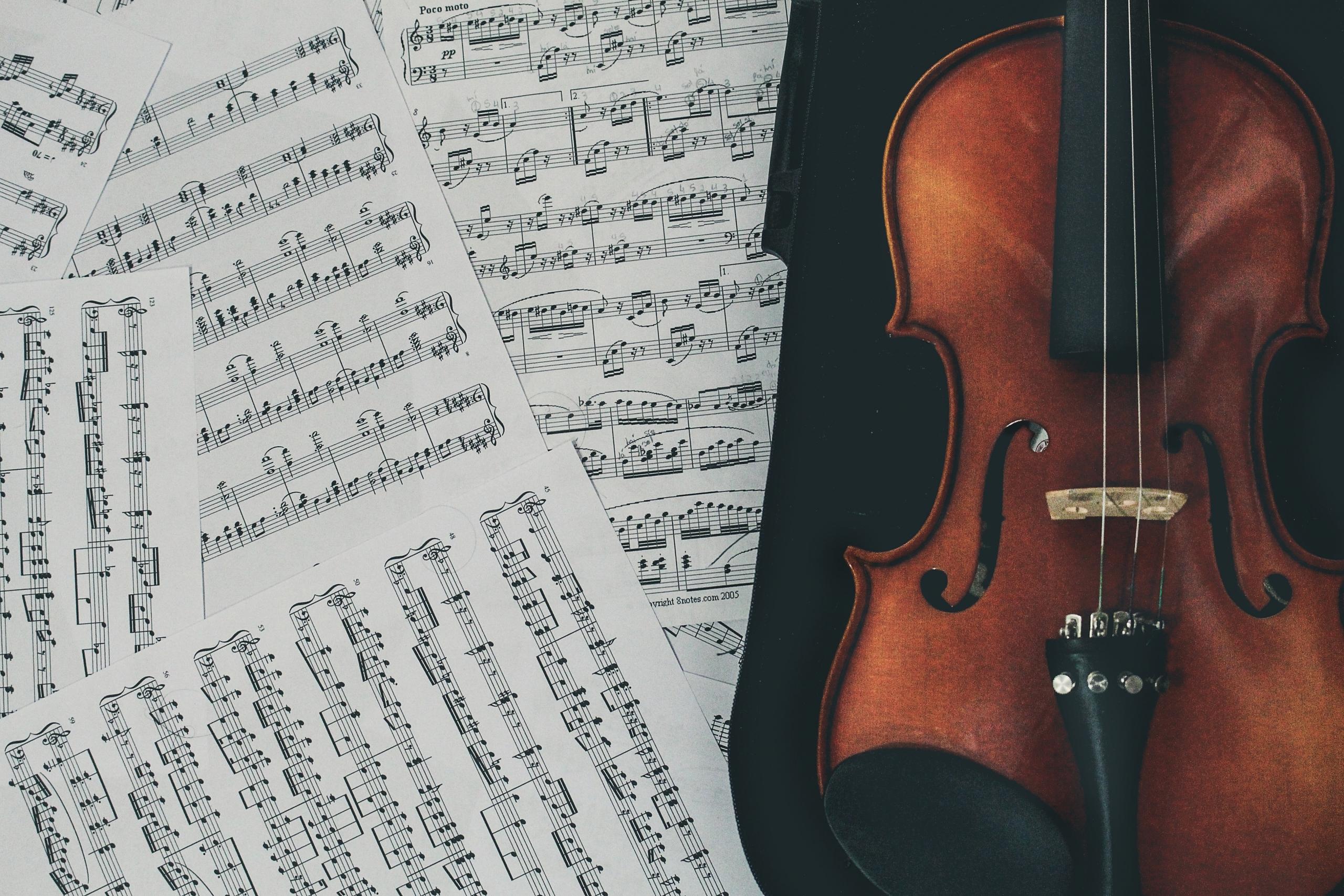
Even if you study with the really outstanding teachers, you should still be patient and not expect to play Vivaldi or Bach after a few weeks of training.
What a good teacher, however, can do is to make your music training in Darwin or elsewhere in the east, west, south or north of Australia more entertaining. Even if you don't have advanced music skills, you can still performs nice pieces of music that bring pleasure to you and those around you.
Teachers with experience know really a lot of compositions for different levels of learners. As they gradually understand you musical tastes, they can suggest pieces that you'll enjoy practising to the whole process more inspiring and fun.
So, when your piano, violin or other music lessons are organised the right way, you'll be able to start performing compositions that you find interesting even before becoming a really skilled musician with a high profile.
The essential thing when taking lessons is to take pleasure in what you are doing. That makes it easier to stay focused for longer periods of time when practising alone or with your teacher and prods your memory, so you'll be able to execute a bigger number of compositions without sheet music.
Among others, there are lots of great music teachers in Gold Coast.
Regularity is crucial
As you may know high-profile musician usually practise music for several hours every day in order to keep their skills sharp. For obvious reasons, a lot of people cannot afford to spend that much time honing their abilities. The question that can naturally arise is whether it is really worth it to take music lessons if you cannot dedicate a lot of time to it.
The answer to that question is definitely yes. As we have said, even without mastering the most technical pieces, you can still enjoy practising music and even put up small concerts for your family and friends.
What's more, even if you don't spend hours training every day, you can still improve your skills over time. In fact, the key to steady progress in music is not really the amount of practice but rather its regularity.
That means that it is better to do technical exercises and learn some new passages for fifteen minutes every day rather than practise for hours on a single day and then forget about the violin or the piano for the rest of the week.
In addition to developing your musical skills, regular practice of music can be beneficial to your mental abilities and well-being. Fine motor activities stimulate our brains, help us relax at the end of the day and bring us satisfaction when we master a new technique.
The Benefits of a Private Tutor and Lessons
A tutor has numerous benefits that obviously come from having private and dedicated attention to your learning. Regardless of the years of training you already have, students in the north, south, east, or west of Australia can benefit from dedicating some of their free time to learning in person or via webcam with an instrument (violin, guitar, piano or otherwise) tuition.
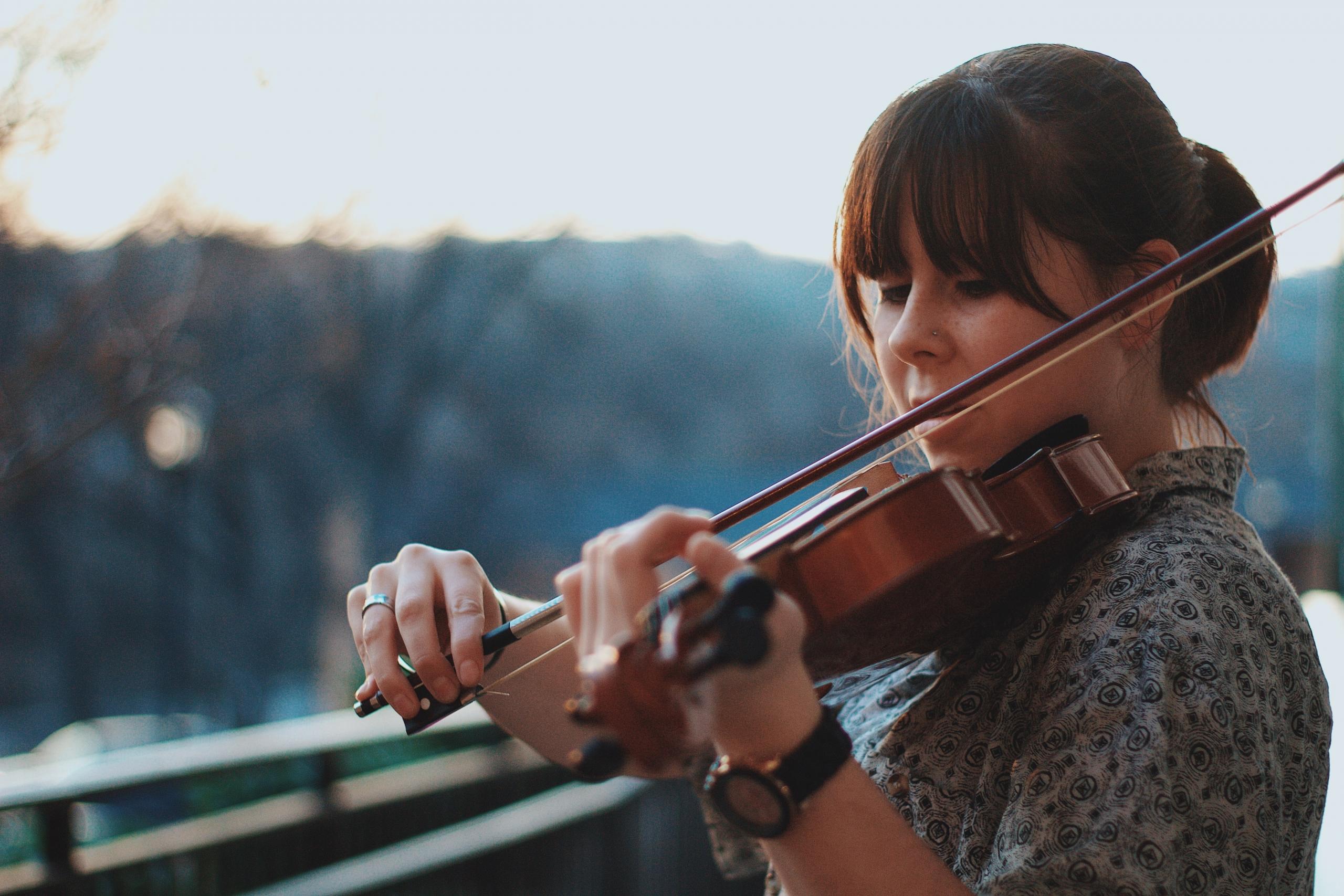
Total Beginners: Those with no musical contact whatsoever, especially not classical music, would do best to book a lesson or lessons with a tutor for the first year at least.
They can get you up to speed on musical theory and chord progressions which you need to understand music more generally, whilst also working on violin technique with you.
Don't worry where you live in Australia, be it in NSW, VIC, QLD or online via webcam. There is no geographical disadvantage no matter where you live, thanks to websites like Superprof that find tutors near you or via webcam. Just find your motivation and get started!
Students from Perth can find out more about teachers living there in our article.
Beginner students: Free learning is the typical modus operandi at this stage of tuition
It's all about coming into contact with the instrument and the music to get you into the ballpark of what the instrument is all about.
It will also take into account the experience you have with similar instruments, like picking with the guitar.
Intermediate and Advanced students :
You might already have quite a bit of experience in your practice, so if you're wanting to continue with your violin lessons or are getting serious for an exam or audition, let your years of violin practice be put to good use with a tutor.
These individuals will help keep you in the swing of regular daily practice and can keep your motivation up, regardless of your level. They can also offer guidance on particular techniques that may be hard to master on your own, as well as offering tips on how to ace exams so that you can pursue your musical education more professionally.
A final important note about violin tutors of this level is that they will expect you to have your own internal drive and dedication to the art form, and they will subsequently push you to a higher standard through training your ear and hands, thus rendering you intuitive in your own practice, and making you the best you can be. Canberra in particular has outstanding violin teachers who can help you improve your music skills.
So no matter where you live, Brisbane, Melbourne, Sydney, or elsewhere in Australia, you will be able to find violin tutors to suit your levels, needs, and desires!
Summarise with AI:

